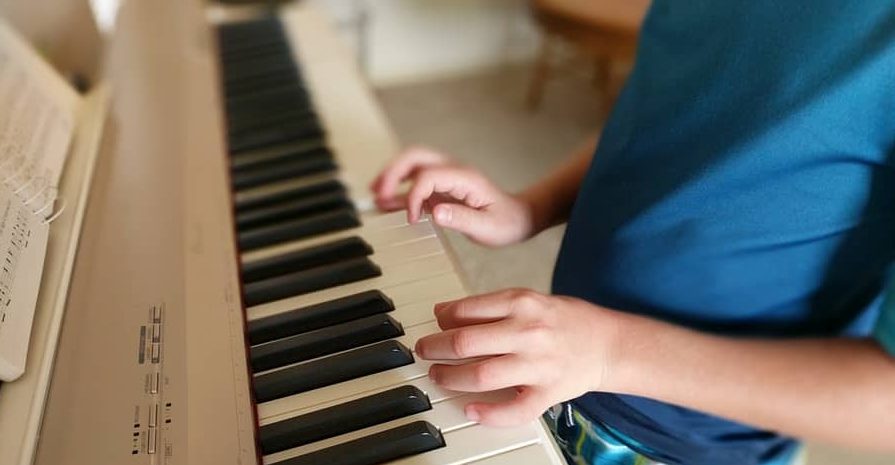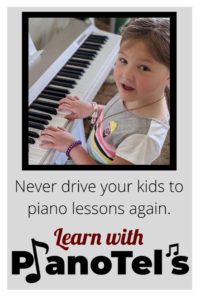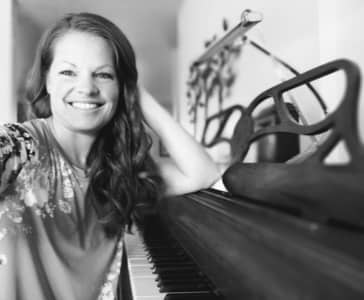With all that hard work and practice, you find yourself getting better and better at your instrument. With the shortage of piano teachers out there, it is not uncommon to have people start to ask if you would be willing to teach. Or maybe you just want to try and earn some money back from all the hard work and effort (and money) you have put in so far to learn this skill.
What age can someone start teaching piano lessons? You can start teaching piano whenever you feel ready to do so. Teaching isn’t always just about what you know or how good you are, but more about how you teach.
Actually, there are plenty of professional piano players out there who are incredibly good, but they don’t have a clue how to teach it! My advice to you, if you are considering teaching piano, is to worry more about teaching it well versus just being the expert at everything piano.

How you teach
A good litmus test on if you are ready to teach piano, would be to ask yourself, “Do I care more about the student or the money?” If you are more into the money than the student, find a different job because you can find jobs that will pay you way more for the amount of work and effort required. If you care more about the student, that’s the right place to be. Your relationship with your student needs to be one of high respect and regard for each other if you want to be truly successful. Of course, money can be a factor for teaching, I get that. Just don’t make it your only reason for teaching or you are in the wrong job.
Are you willing to go above and beyond your student’s minimum needs in order to find ways to teach your students in ways that are best for them? Each student is going to be a little different, so you really need to evaluate if you are willing to try new things, research new ways, or find new music or methods that fit your student. Your interest in teaching and your student’s interest in learning will largely be affected by how much you are willing to invest into this work.
Can you continue to learn? A teacher needs to be flexible and ready to learn right along with the student in ways to better the lessons. Sometimes that means taking additional classes on music theory to gain a better understanding so as to teach it more comprehensively. There are some great music music theory courses for free on Coursera. Sometimes it means hitting up the internet to find fresh ideas for how to approach certain lessons. It means to be willing to adjust, willing to learn, willing to adapt.
If you are feel you are ready to begin this adventure, you will want to think through a few things first.
Things to consider before you begin teaching piano
How much would you like to charge? The typical rate for a beginning teacher is anywhere from $10 – $15 per lesson. You can charge a little more for individual lessons. Since you have more kids coming in a group lesson, sometimes that allows for those lessons to be a little less. The more knowledge, the more experience you have under your belt, the more you can begin charging. But that’s a good starting point.
Would you like to teach individual or group lessons or a mixture of both? Individal lessons are the more traditional, recognized method of teaching but it has its drawbacks. Teaching theory can be a lot more fun as a group. There are some really fun ways to present the information when you have peers to work with. Group lessons also create a natural environment to practice performing. On the flip side, individual lessons do give you more opportunity to tailor the lessons to the individual and go at the pace they are ready for. You could merge the two and get the best of both worlds if you prefer.
Where are you going to hold your lessons? Many teachers travel to the student’s homes. If you are up for this, students generally really appreciate a teacher who is willing to do this because it makes it convenient for them. This does limit your ability to do group lessons, so take that into consideration. If you have a place in your home or another place you could use, you could set up your own studio. This is advantageous because then you can have all your supplies on hand. Having your own studio or a space you can rent out, will provide you with the ultimate flexibility for individual or group lessons. Ideally you will want a place free of distractions.
How long will your lessons be? Traditionally, 30 minute lessons are typical for beginners in individual lessons. Group lessons are generally an hour or more.
How often will you hold lessons? About once a week seems to be about right for beginning students. Sometimes I like to even have more lessons – up to twice a week – if possible for those that are younger and just beginning.
What will be your teaching philosophy? Deciding what your philosophy is and keeping that in mind will truly help you as you shape your lessons and build your studio.
What materials will you need? A good piano is essential. It can be a grand, upright, or electric piano. You will also want a good method book to help you get going. My favorite method books are Piano Pronto by Jennifer Eklund. As you teach, you will build your materials up with flashcards, games, music, and other materials. Those materials can accumulate with time and as you work with your first students. I wouldn’t worry about having absolutely everything you would ever need right away. Wait until you get through some lessons and begin to see what would be helpful to have as you go.
How much are you going to require your kids to practice? This is so important to your success with your students! The majority of each student’s success will be due to their practicing. Decide what you feel would be best for them according to their age and learning styles and be ready to stick with it.
If you still feel like you need to do a little more to be more official, then there are options for you to do so.
What credentials can you get for teaching piano?
If you really do want something to beef up your resume, there are options out there for you. You can go get a college degree in music. Its saying a lot to your students if you have gone through college to get that degree. But I do have to warn you, that just because you have a degree, it does not determine the quality of your teaching. It is not uncommon to have only a small class or two on actually teaching music in a whole four year degree. There is not a lot of help in your degree in actually helping you teach your instrument
Another option, is to become MTNA Certified. They are an organization seeking to bring more professionalism into the world of music teaching. This kind of certification is mostly beneficial for teachers just starting out or trying to recruit more numbers. It can seem impressive to say that you are certified. But don’t get too caught up in this.
Truly, there is really no need to become certified. Most people don’t care anyway, as long as they see results in your teaching. Experience becomes your biggest asset for making you more legit and a more sought-after teacher.
As you consider how you teach piano and what you would need to start piano, then you can decide if you are ready to begin. I started teaching piano at 14 years old. I can’t say I was the best teacher at that age, but it was a good place for me to start! I also know a piano teacher who is still inspiring and teaching at age 90. The point is – you could do it, no matter your age.
Begin today!
If you have gone through these steps and are still interested in teaching piano and feel qualified to do so, then please, please, please do! We need more teachers like you out there. The world is ready and waiting for you to get out there and start teaching!
Tel loves her life as a piano player, a piano teacher, and a mom. Amid piano blogging, piano teaching, and piano playing, she loves a chance to fit in a good exercise class, volunteer at her kids’ school and at her church, and go on long dates with her husband. Full bio at About Tel.


